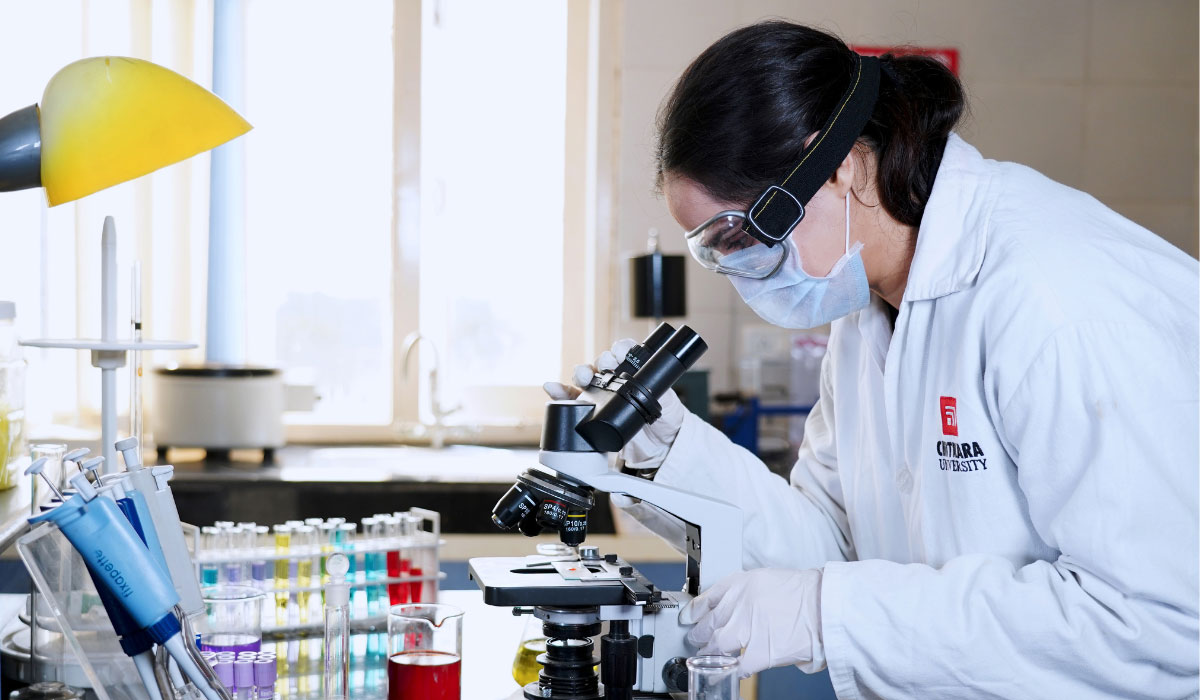Undoubtedly, a highly regarded degree like a Ph.D in your field will open a wide range of opportunities for you and act like a booster dose to your career. The main goal of doing the course usually is to reach a level higher in your field while developing new projects and understandings. In a country like India, the degree also brings an immense level of recognition and respect to the individual.
A Ph.D in the medical field will bring you massive career privileges. You will get the opportunity to research units of hospitals, pharmacies, biomedical organizations, medical pharmacology, etc. Since a doctorate study is not going to be an easy journey, it is very important to make a firm decision that whether you are enough dedicated to giving 5 years of yours to a study. After taking this decision, another hurdle is deciding your area of study.
Here, have a quick read if you are confused between pursuing a doctorate in Medicinal Chemistry vs. Pharmaceutics.
Let’s understand both of them first
Medicinal Chemistry
Medicinal Chemistry is a study in which molecules are either created or improved with the intention of enhancing the quality of the drug. The study is based on synthetic organic chemistry which includes combining different small molecules to create bigger ones.
The molecules are again refined during the process of drug development. Later, there are specific teams dedicated to finding better ways to put the drug into the patient’s body. The experts also take charge of improving the already existing medicines in the market by optimizing the structure and molecule quality. The aim is to provide higher-quality medicines to patients
Coming to the Ph.D aspect of the study is all about the research around the development of new drugs by understanding the behavior of the chemicals at the molecular level. Students have the option to conduct interdisciplinary research in fields such as bio-organic and medicinal chemistry, supramolecular & nanochemistry, neurodegenerative disorders, and cancer therapeutic development.
Students pursuing a Ph.D in Medicinal Chemistry collaborate with subject experts in modern laboratories to create, synthesize, and evaluate drug compounds. They gain knowledge of chemical compounds’ characteristics and how these characteristics impact drug absorption, kinetics, distribution, excretion, and metabolism. The goal of the study is to understand pharmacological actions better so that better drugs can be designed.
Pharmaceutics
Pharmaceutics is a branch of Pharmacy that deals with all the aspects of converting a new chemical entity (NCE) into a safe and effective medication through a process known as pharmaceutics. The category is all about the formulation of a pure medicinal substance into a dosage shape. Designing dose forms is the domain of pharmaceutics. Although many chemicals have known pharmacological characteristics, a patient cannot benefit from a raw chemical. The formulation of a pure medicinal substance into a dosage shape is the focus of pharmaceutics.
Ph.D in this discipline is an advanced educational program that includes research on medical drugs and it also guides the learner about the relationship between drug disposition, formulation, delivery, and clinical response. This pharmaceutical course’s researchers teach students to conduct excellent research in the key areas of drug action and drug disposition. Elimination, dispersal, and drug absorption are characteristics that are connected to drug disposition. Students must look into the relationships between medication formulation, disposal, delivery, and clinical reaction.
After taking this course, a research student will be able to explain the relationships between metabolites in various bodily tissues or compartments, the power of medications, and the indication of both harmful and beneficial pharmacologic effects.
After finishing this course, students are prepared to carry out adjustments to biochemical and physiological processes that may be caused by variations in pharmacological response to drugs and common diseases.
Students in this subject will also study in vitro systems. To master the vitro system, students must have a specific aptitude, and this course will assist them in doing so.
Also, give a quick read to What is the future of pharmacy as a career?
The difference between both
Pharmaceutical chemistry and Medical chemistry concentrates on the investigation of drugs and the potential medical applications of those drugs. Pharmaceutical chemistry focuses on the study of existing drugs and the creation of new ones, whereas medicinal chemistry focuses on designing, optimizing, and developing new chemical compounds with the intention of using them as drugs. This distinguishes the two fields from one another.
Pharmaceutics focuses more on the chemistry of manufactured drugs and less on the chemistry of biological interactions, whereas medicinal chemistry is more concerned with molecule properties and how they relate to biological interactions and effects. The history of chemical substances meant to be used as pharmaceuticals includes the wide subject of pharmaceutical chemistry, which covers everything. These substances include, for instance, medications, additives, and diagnostics. Nowadays, the term “medicinal chemistry” is being used more frequently to refer to the study of drug development and formulation. This holds true whether the molecule in issue is natural, artificial, or semi-artificial.
Medicinal chemistry primarily deals with biological, medical, and pharmaceutical sciences which focuses mainly on chemistry. It focuses on the creation, identification, design, preparation, and research of biologically active compounds as well as their metabolism, molecular understanding of their mode of action, and the development of structure-activity relationships whereas Pharmaceutical chemistry places more emphasis on patient-centered pharmaceutical care and the pharmacist’s position as a therapeutic advisor than it does on chemical research.
Conclusion
The study of pharmaceuticals and drugs which is used to treat various conditions is a key component of both medicinal chemistry and pharmaceutical chemistry. There are only a few significant differences between these two professions, which both focus on the formulation and manufacturing of pharmaceuticals. One of these differences is that medicinal chemistry focuses its research not just on medicines but also on the physiological mechanisms by which drugs act on the body. Pursuing either of them highly depends upon a candidate’s interest and approach but Ph.D in Pharmaceutics is a better choice depending on the current scenario and its future scope.
Chitkara University offers a well-designed doctoral program in pharmaceutical science that enriches your knowledge by forming and energizing groups of candidates who finish the majority of their courses together. The group challenges you continuously through online discussions in between monthly class sessions and inspires you to advance by offering an emotional and social support group.






